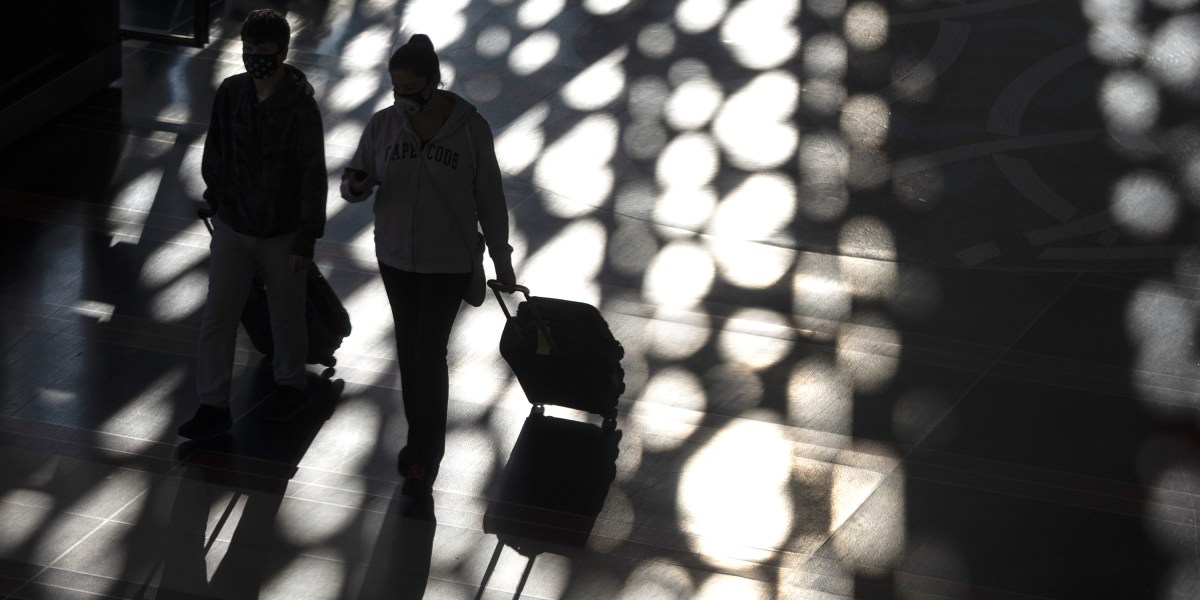I found this article cogent:

 www.technologyreview.com
www.technologyreview.com
The experiment: To actually find out how well current vaccines will work, researchers around the world are already racing to isolate omicron from the bodies of infected travelers. They will grow the germ in laboratory cells and then expose it to blood plasma from vaccinated people. They can then measure how well that person’s antibodies block the virus. Other labs will use genetic information about omicron to create “pseudoviruses” that harbor just the variant’s spike gene, to carry out similar tests.
“This is important to find the answer we need: Do the antibodies still neutralize [the virus]?” says Volker Thiel, a virologist at the University of Bern. “Depending on the degree of blocking, you can say this is still working, or not as well.”
How soon: These types of tests usually take a couple of weeks to perform. For past variants, like alpha, companies like Moderna and BioNTech published answers from their laboratory tests within the month.
What’s next: If omicron evades vaccines, it could mean that companies like Moderna and BioNTech will need to re-engineer their messenger RNA products for the first time to reflect the changed genetic makeup of the new variant. That could be a common occurrence as the years go by. In the future, expect to get an annual booster before winter sets in, just as you do for the flu.
The issue is that omicron is so new that most cases are only a week or two old, while it often takes several weeks for covid-19 to cause severe problems or death. “It’s too early to say something about disease severity. So far, we can’t really say anything,” says Christian Althaus, an epidemiologist in Bern.

We won’t know how bad omicron is for another month
Gene sequencing gave an early alert about the latest covid variant. But we'll only know if omicron is a problem by watching it spread.
Will the vaccines still work?
The worry: The head of Moderna, Stéphane Bancel, sent tremors through the stock market when he told the Financial Times that vaccines would take a hit from the variant. He anticipates a “material drop” in their effectiveness, adding that scientists were telling him: “This is not good.”The experiment: To actually find out how well current vaccines will work, researchers around the world are already racing to isolate omicron from the bodies of infected travelers. They will grow the germ in laboratory cells and then expose it to blood plasma from vaccinated people. They can then measure how well that person’s antibodies block the virus. Other labs will use genetic information about omicron to create “pseudoviruses” that harbor just the variant’s spike gene, to carry out similar tests.
“This is important to find the answer we need: Do the antibodies still neutralize [the virus]?” says Volker Thiel, a virologist at the University of Bern. “Depending on the degree of blocking, you can say this is still working, or not as well.”
How soon: These types of tests usually take a couple of weeks to perform. For past variants, like alpha, companies like Moderna and BioNTech published answers from their laboratory tests within the month.
What’s next: If omicron evades vaccines, it could mean that companies like Moderna and BioNTech will need to re-engineer their messenger RNA products for the first time to reflect the changed genetic makeup of the new variant. That could be a common occurrence as the years go by. In the future, expect to get an annual booster before winter sets in, just as you do for the flu.
Does omicron cause more severe disease?
The worry: Initially, some South African doctors said the symptoms caused by the new variant seemed milder, but then came reports of more hospital beds filling up. Right now, no one knows whether omicron causes worse symptoms or not.The issue is that omicron is so new that most cases are only a week or two old, while it often takes several weeks for covid-19 to cause severe problems or death. “It’s too early to say something about disease severity. So far, we can’t really say anything,” says Christian Althaus, an epidemiologist in Bern.

